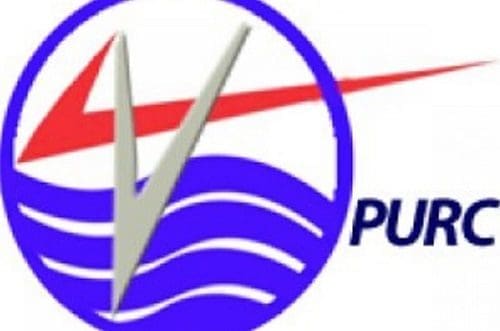Ghana’s utility regulator has collected over GH¢80 million for service providers while simultaneously forcing companies to refund hundreds of thousands of cedis to consumers who were overcharged or poorly served, according to third quarter performance figures released by the Ashanti Regional office.
The Public Utilities Regulatory Commission’s Ashanti office collected GH¢80,628,623.30 in revenue for utility providers between July and September 2025, while recovering GH¢426,291.55 from those same companies to compensate consumers for billing errors and service failures. It’s a dual mandate that puts the Commission squarely in the middle of Ghana’s perennial utility challenges, balancing the financial health of service providers against consumer protection.
Mr. Richard Asiedu, the regional Public Relations and External Affairs Officer, attributes these results to PURC’s complaints resolution system, which handled 509 grievances against the Electricity Company of Ghana and Ghana Water Limited during the quarter. The Commission resolved 269 of those cases, with others still working through the settlement process.
What’s particularly notable isn’t just the money changing hands, but the scale of infrastructure interventions the Commission facilitated. Nine faulty electric poles were replaced during the quarter, along with seven damaged transformers and 10 defective meters. Water infrastructure also received attention, with several burst pipes repaired and eight new service connections completed after prolonged delays.
These aren’t routine maintenance items. They’re symptoms of deeper infrastructure challenges that have plagued Ghana’s utility sector for years. When regulators have to step in to replace transformers and fix meters, it suggests that normal service provider operations aren’t meeting basic reliability standards.
The numbers tell an interesting story about consumer frustration. More than 500 complaints in just three months from one region indicates either significant service problems or growing consumer awareness of their rights to challenge utility companies. Perhaps both. The fact that only about half were resolved during the quarter also raises questions about the complexity of disputes or the capacity of resolution mechanisms.
Mr. Asiedu frames the Commission’s work in terms of dual objectives: protecting consumers while ensuring utilities can operate efficiently and transparently. That’s the theory, anyway. In practice, it’s a delicate balancing act. Utilities need revenue to maintain infrastructure and expand services. Consumers need protection from exploitative billing and poor service delivery. When those interests clash, regulators end up playing referee.
The GH¢426,291.55 recovered for consumers represents real money returned to households and businesses that were incorrectly billed or inadequately served. It’s not a massive sum in the grand scheme of Ghana’s economy, but for individual consumers dealing with erroneous bills that can run into thousands of cedis, regulatory intervention makes a tangible difference.
What remains unclear is whether these interventions are addressing root causes or merely treating symptoms. Replacing nine poles and seven transformers in three months is helpful, but why did they fail in the first place? Were they inadequately maintained? Past their useful life? Victims of weather or vandalism? The underlying infrastructure deficit doesn’t disappear just because regulators facilitate repairs.
The Commission’s emphasis on operational efficiency and regulatory compliance sounds promising, but implementation will determine whether these quarterly achievements translate into sustained improvement. Ghana’s utility sector has cycled through periods of reform and regression before. The real test isn’t whether PURC can collect revenue and resolve complaints in one quarter, but whether it can drive systemic improvements that reduce the need for such intensive regulatory oversight.
Mr. Asiedu’s commitment to vigilance in protecting consumer rights while fostering financial stability for utilities captures the essential tension. Can Ghana build a utility sector that’s both consumer friendly and financially sustainable? The third quarter figures suggest progress, but the volume of complaints and infrastructure failures indicates there’s still considerable ground to cover.
For now, the Commission continues serving as intermediary between frustrated consumers and struggling utilities, trying to bridge a gap that reflects broader challenges in Ghana’s infrastructure development and service delivery.
Source: newsghana.com.gh











